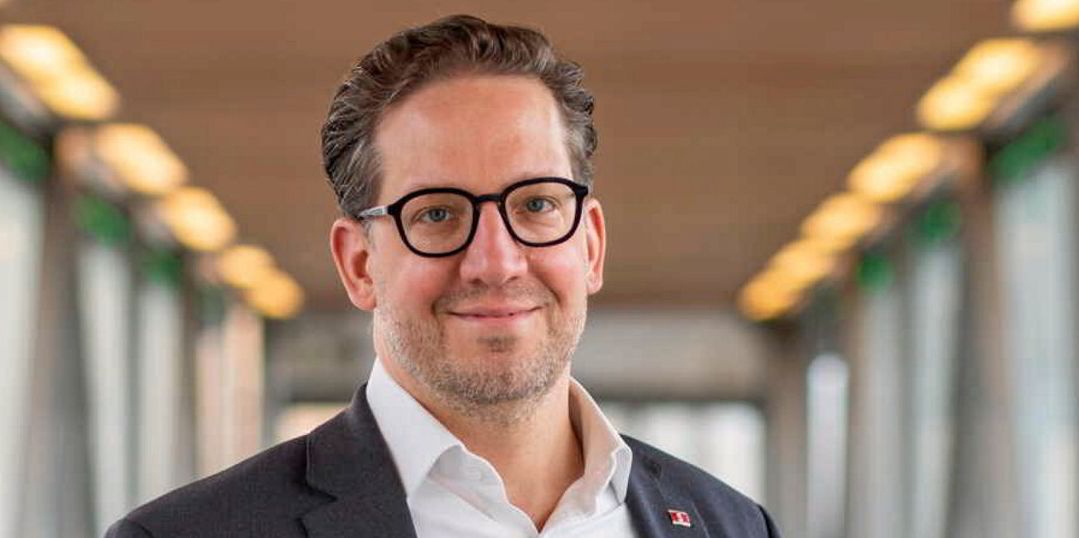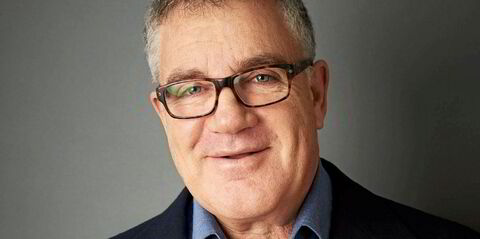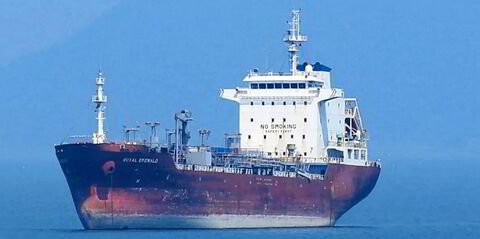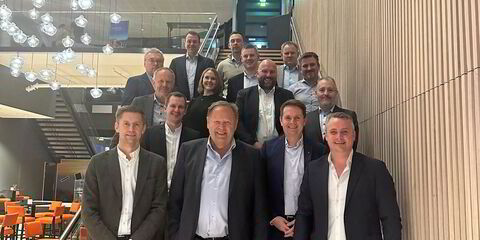When Ron Gerlach joined Stena Teknik two years ago, he started changing the way the company thought about the future.
The development unit of Sweden’s Stena Group was well stocked with naval architects, like their new technical director, but Gerlach recognised that the demands of decarbonisation required some people with a different set of skills.
So in have come the chemists, the electro-physicists and the technologists to join the naval architects to work together on a vision for a greener generation of shipping.

Gerlach, with a background of more than two decades across Stena’s companies, leads a 25-strong team charged with bringing the best technological developments in the market to Stena’s fleet.
A new sustainability and energy team within Stena Teknik is looking at developments in fuels. Another group will use machine learning and artificial intelligence to investigate how to improve performance and efficiency in the absence of a breakthrough fuel and bunkering network.
The company has cast its gaze over carbon capture and nuclear power, while focusing on the prospects of methanol over ammonia.
Gerlach is excited about what artificial intelligence and machine learning will bring to the industry, and what that might mean for routes and trades and the most efficient use of assets.
For the company’s ferry interests, that would include taking account of social and political events that would affect passenger numbers. “That’s something that’s extremely complex to calculate on an Excel spreadsheet,” he says.
The changes have led to a longer-term view for his team that doesn’t rely on waiting “for a contract strapped to a brick flying through the window” from one of Stena’s shipping units seeking to bolster its fleet with newbuildings.
“We’re not involved in daily fleet operations,” he says. “We have a 10- to 20-year horizon. We’re far more going from reactive to proactive.”
In 2022, Stena Group stated its intention to play a leading role in the development of methanol as a marine fuel and to work on large-scale battery projects for ferries. It has set goals of cutting energy consumption across all its business units and pushing the use of biofuels in its tanker unit, Stena Bulk.
Stena Teknik has been involved in developing projects including a dual-fuel methanol fleet of tankers for Stena Bulk in conjunction with natural gas specialist Proman. The joint venture introduced four Chinese-built 50,000-dwt methanol tankers to the fleet by the end of 2022.
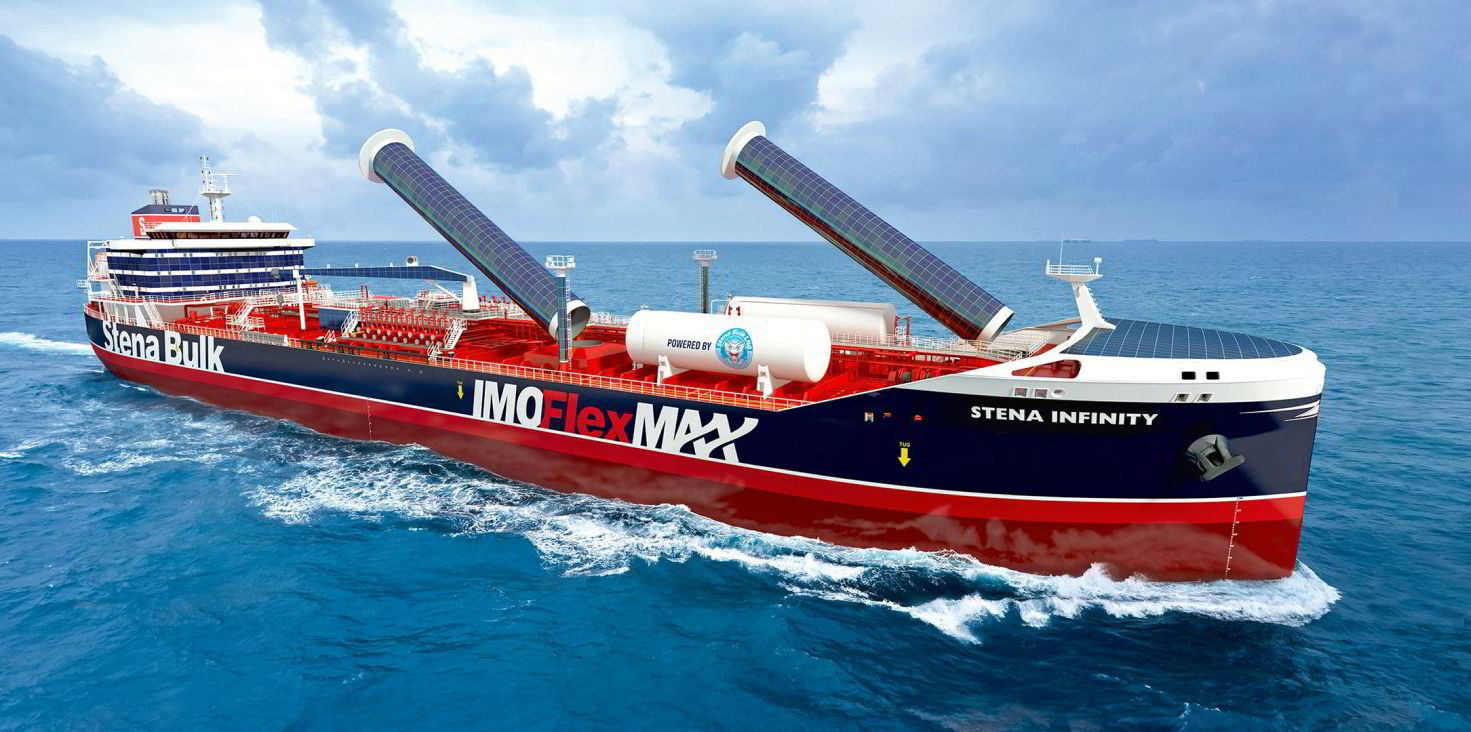
Stena Teknik has also worked with Stena Bulk to develop a prototype product and chemical tanker that uses solar panels, wind power and dual-fuel engines that can run on LNG. Stena claims that this IMOFlexMAXwill reduce greenhouse gas emissions by more than one-quarter compared with current modern tankers.
It has also collaborated with Stena Line on plans for the launch of a battery-powered passenger ferry to ply the route between Gothenburg in Sweden and Frederikshavn in Denmark before 2030. The first vessel is due to be ordered by 2025.
The structure forces Stena Teknik to focus on technological advances that are both practical and profitable under the scrutiny of other group companies. It’s a practice of collaborative working that he feels is not echoed in the broader shipping industry.
“Everyone talks about collaboration. We have to be far more precise about what that means,” he says. “It sounds great. You attend all these conferences and everyone says, ‘We have a target.’ … Everyone applauds and then leaves. That’s not going to solve the problem.”
What it should mean in practice, he believes, is shipowners giving clear demands to fuel suppliers about their future needs, which fuels have to be supplied and where, and the cost structure to make them workable. Key questions such as rebates on large orders would need to be discussed before orders could be placed, to justify the huge investments required to make zero-emission shipping a reality.
“Shipping is rather fragmented and people do their own thing,” Gerlach says. “We are very scared of sharing data. How do we encourage that more as an industry and use that as an advantage? We are quite open to some of our competitors in a way that we have never done in the past.”
But he says the industry can advance only if there are real consequences for those who do not follow the emissions-cutting agenda.
While Stena Group will be complying with new International Maritime Organization regulations on emissions, he worries about what will happen to those ships that score “failing” grades in its new Carbon Intensity Indicator.
“We’ll do our part and comply with CII, but what happens to the ones that don’t? There will need to be consequences.”
